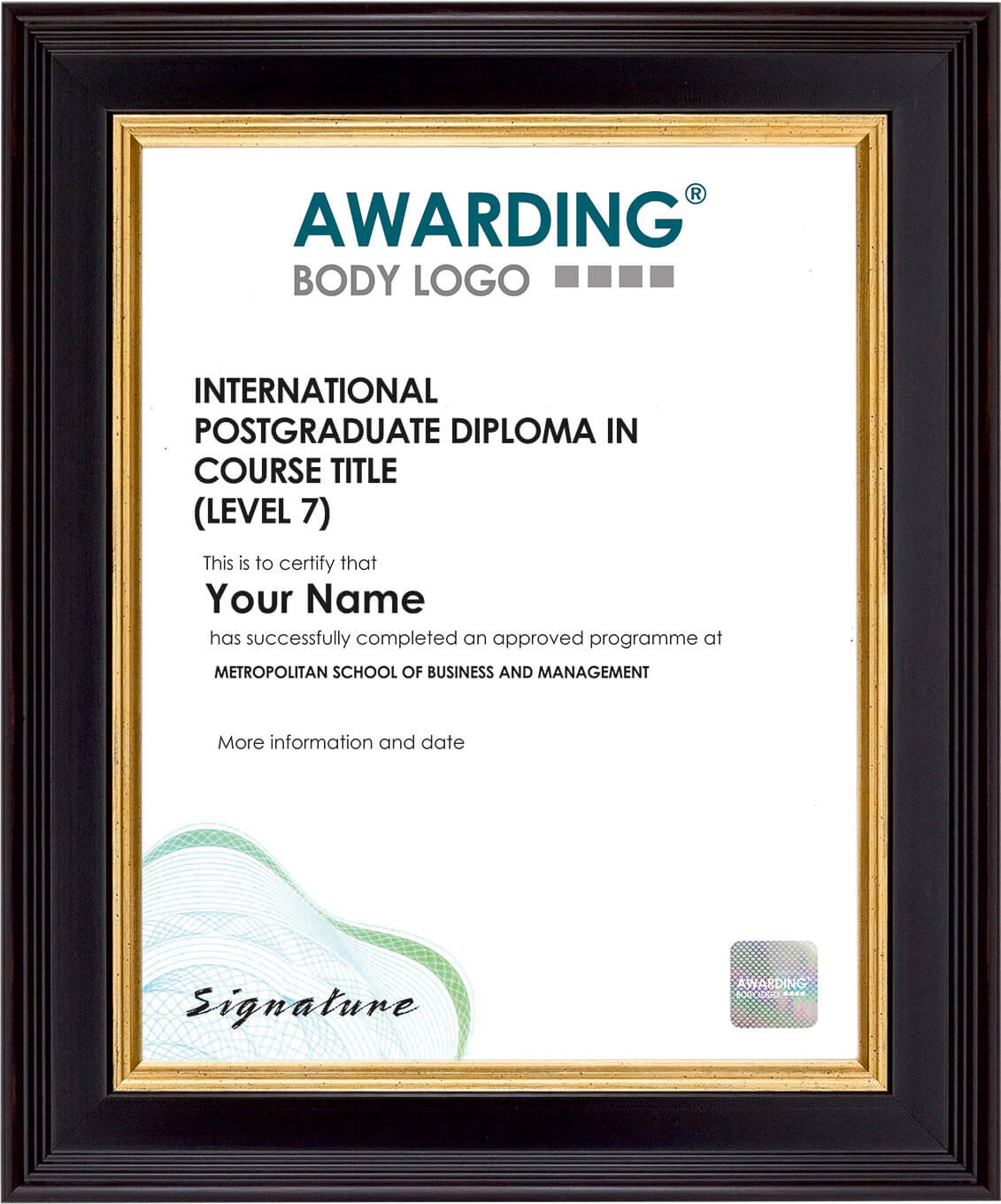International Postgraduate Diploma in Commercial and Business Law (Level 7)
The International Postgraduate Diploma (IPGD) in Commercial and Business Law is designed to fit around work and personal commitments. World-class teaching is delivered via pre-recorded online lectures to enrich the learning experience. MSBM has perfected the art of delivering practical innovation and development skills. Our practice-based approach focuses on addressing real-world business problems.
We don’t just give you the theory; we ensure you learn how to apply it in your working life immediately, with case studies, webinars, and business simulations, and 100% project-based.
The International Postgraduate Diploma (IPGD) in Commercial and Business Law allows you to achieve the qualification in 6 months. It is a fast track to new opportunities and enhanced career prospects.
This programme aims to deliver practical and realistic solutions to the challenges in commercial and business law, which in turn is supported by appropriate reference to theoretical and conceptual analysis.
Accreditation
All MSBM courses are accredited by the relevant partners and awarding bodies. Please refer to MSBM accreditation in about us for more details.
University Progression
University Top-up
Upon completing this course, students can complete a Master's degree programme from one of our Partner Universities. The top-up programme can be studied online. The top-up may comprise the study of a few modules or a final dissertation project.
(The course tuition fee listed above does NOT include the top-up fee)
For more details and partner Universities offering the topup, please speak to our student advisors.
Entry Requirements
For entry onto theInternational Postgraduate Diploma (IPGD) in MCommercial and Business Law qualification, learners must possess the following:
- An honours degree in a related subject or the UK level 6 diploma or equivalent overseas qualification, i.e. bachelor's Degree or Higher National Diploma
OR
- Mature learners (over 25) with at least five years of management experience if they do not possess the above qualification (this is reviewed on a case-by-case basis)
Course Modules
This module provides the most critical information about the study course and assignment submission.
The unit's aim is to allow learners to develop key knowledge, understanding and skills relating to legal research and theoretical and methodological problems associated with legal studies. Learners will be able to cover key topics relating to a research problem, conduct literature reviews, referencing, data collection and analysis techniques, and drawing conclusions from the analysed data.
This unit aims to provide information to learners about English Law relating to registered companies including both private and public limited companies. Learners will gain knowledge and understanding about the legal issues affecting companies, the rights and obligations of shareholders and directors and the legal procedures relating to corporation liquidation.
This unit explores the law of trusts in an international context, comparing doctrine in different jurisdictions and exploring the theoretical implications of such differences.
The aim of this unit is to enable learners to gain an understanding of regulatory and legislative requirements relating to industrial and intellectual property laws. Learners will examine relevant issues including financial strategy, debt and equity management, the key drivers of shareholder value, corporate governance, and asset portfolio management.
The aim of this unit is to develop learners’ understanding of international trade law. Learners will focus on areas such as international competition policy, and the principles and practices of international sales contracts and analyse issues associated with an organisation trading globally.
The Law and Financial Crimes course provides an overview of the laws and regulations related to financial crimes. Students will learn about the legal framework governing financial crimes, as well as the strategies and techniques used to investigate and prosecute them. Topics covered include the role of financial institutions in preventing financial crimes, the use of technology in financial crime investigations, and the international cooperation necessary to combat these crimes. Students will also gain an understanding of the ethical and professional responsibilities of legal practitioners involved in financial crime cases.
Workshops
Workshops are conducted by live webinars for online students.
Visa Requirements
There is no Visa requirement for this programme.






































